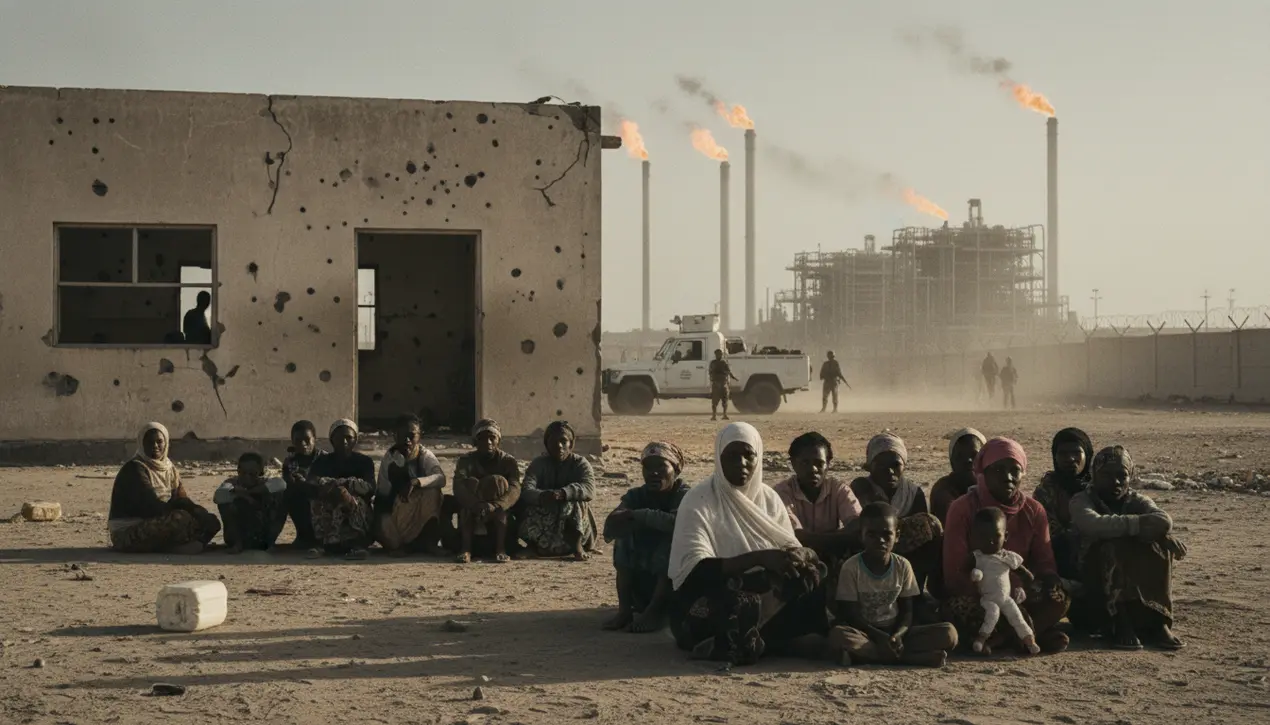
Politicsconflict & defenseWar Reports and Casualties
French energy giant Total faces war crimes allegations in Mozambique.
OL
Oliver Scott
1 hour ago7 min read2 comments
The stark accusation leveled against French energy behemoth TotalEnergies, alleging complicity in war crimes linked to its massive Mozambique LNG project, detonates across the corporate and geopolitical landscape with the force of a delayed-action bomb. This isn't merely a corporate public relations crisis; it's a profound test of the increasingly blurred lines between multinational commercial operations and the brutal realities of local insurgencies.At the heart of the scandal lies the Cabo Delgado province, a region rich in natural gas but scarred by a violent Islamist insurgency that has displaced nearly a million people. TotalEnergies, as the lead operator of a $20 billion liquefied natural gas venture, has long argued that its presence is a stabilizing force, a cornerstone of economic development.Yet, the grim counter-narrative, now formalized in legal complaints filed in France, paints a chillingly different picture. The allegations suggest that the security forces protecting Total's installations, which include a mix of Mozambican military and private contractors, have been responsible for dozens of extrajudicial killings, disappearances, and acts of torture against local civilians—actions that, under international law, could constitute war crimes.TotalEnergies' defense is a familiar corporate refrain in such high-risk zones: they deny direct responsibility, asserting they do not control the state-sanctioned security apparatus. However, this legalistic shield is being challenged by the doctrine of 'corporate complicity,' which scrutinizes the knowing provision of practical assistance or encouragement that has a substantial effect on the commission of a crime.Did the company's payments, its logistical support, or its mere continued operation in a conflict zone amount to such encouragement? Risk analysts are now running scenarios where a finding against Total could establish a devastating precedent, potentially opening floodgates for litigation against other extractive industries operating in conflict areas from the Niger Delta to Myanmar. The situation in Cabo Delgado is a textbook case of the 'resource curse,' where vast wealth fuels rather than quells violence, and TotalEnergies is now caught in the vortex.The company's previous pauses and restarts of the project, dictated by security assessments, now look less like prudent caution and more like a high-stakes gamble with human lives. For investors, the calculus is shifting from pure financial return to encompassing severe reputational and legal liability. The outcome of this case will reverberate far beyond the courtrooms of Paris, potentially forcing a wholesale re-evaluation of how global capitalism interfaces with local conflict, and redefining the very meaning of corporate accountability in the 21st century's shadow wars.
#featured
#TotalEnergies
#Mozambique
#war crimes
#massacre
#security forces
#human rights
#corporate accountability
Stay Informed. Act Smarter.
Get weekly highlights, major headlines, and expert insights — then put your knowledge to work in our live prediction markets.
Comments
Loading comments...
© 2025 Outpoll Service LTD. All rights reserved.